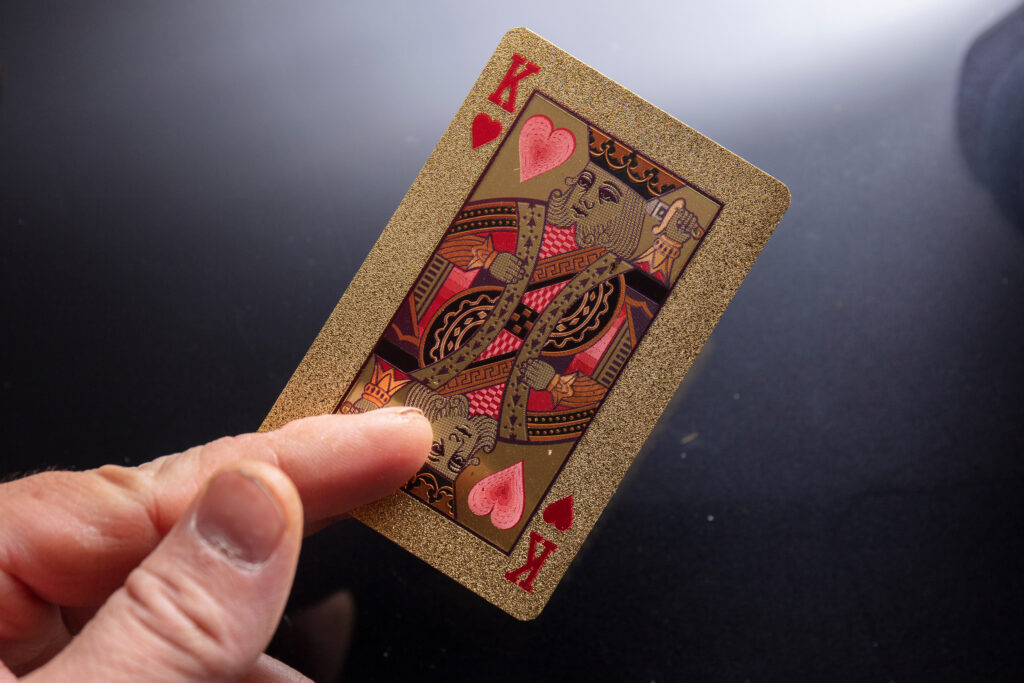
Poker is often portrayed as a battle of wits and a test of strategy, but there’s an equally critical aspect often overshadowed by the glamor of a royal flush or the thrill of a well-timed bluff – the mental game. This psychological component is as crucial as understanding pot odds or reading an opponent’s tell. In this exploration, we delve into the intricacies of the mental game in poker, a facet that can elevate a player from good to exceptional.
The Mental Landscape of Poker
Imagine poker as a high-stakes chess match where the pieces are human emotions, and the board is an ever-shifting terrain of psychological warfare. Every player brings to the table not just their chips and cards but also a unique mental framework shaped by their experiences, temperament, and resilience.
Understanding Tilt: The Nemesis of Rational Play
At the heart of poker’s mental game is the concept of ’tilt’ – a state where emotions, rather than logic, dictate your decisions. Tilt can be triggered by a bad beat, a string of losses, or even a single misplayed hand. It’s akin to a snowball rolling downhill, gathering momentum and size until it’s an avalanche of poor choices and lost chips.
To counter tilt, it’s essential to develop emotional equilibrium. This involves recognizing the early signs of tilt – frustration, impatience, or over-aggression – and taking proactive measures like stepping away from the table or practicing deep breathing exercises. It’s about putting the brakes on that snowball before it turns into an avalanche.
The Role of Confidence: Walking the Fine Line
Confidence in poker is a double-edged sword. On one side, it’s a vital component of a winning mentality, fueling bold plays and calculated risks. On the other, overconfidence can lead to complacency and underestimating opponents. Striking the right balance is key. It’s like being a tightrope walker; lean too much to one side, and you risk falling off.
Building confidence in poker involves a mix of study, practice, and self-reflection. Analyzing your play, learning from both wins and losses, and staying updated on strategies are all part of nurturing a healthy confidence level.
Dealing with Variance: The Stoic’s Approach
Variance in poker – the ups and downs inherent in the game – is a test of mental fortitude. Even the best players face periods of downswings. The key is to adopt a stoic approach, accepting variance as an integral part of the game. It’s about focusing on what you can control – your decisions, not the outcome of a particular hand or session.
Mental Agility: Adapting to the Table Dynamics
Poker tables are dynamic environments, with the mood and playing style shifting as players come and go. Mental agility – the ability to adapt your strategy to the current game scenario – is crucial. It involves reading the table, understanding the current dynamics, and adjusting your play accordingly. It’s like being a chameleon, seamlessly blending into the changing landscape of the game.
Resilience: Bouncing Back from Setbacks
In poker, resilience isn’t just about bouncing back from a bad game; it’s about learning and growing from those experiences. It involves analyzing what went wrong, drawing lessons, and applying them to future games. Resilience in poker is like forging steel; the process of heating, hammering, and cooling results in a stronger material.
Mindfulness and Focus: Staying in the Moment
The ability to stay focused and mindful during a game is a potent tool in a poker player’s arsenal. Mindfulness involves being fully present in the moment, not dwelling on past hands or fretting about future ones. Techniques like meditation can enhance your ability to stay focused, ensuring that your decision-making remains sharp and deliberate.
Emotional Intelligence: Reading and Responding to Opponents
Poker is as much a game of reading people as it is about reading cards. Emotional intelligence – the ability to perceive, interpret, and respond to your own and others’ emotions – can give you an edge. It involves picking up on subtle cues, understanding the emotional state of your opponents, and using this information to make informed decisions.
Long-Term Perspective: The Big Picture Approach
Maintaining a long-term perspective is vital for mental well-being in poker. It’s about understanding that poker is a marathon, not a sprint. Setting long-term goals, tracking progress, and not getting bogged down by short-term setbacks are all part of this big-picture approach.
The Inner Game of Poker
The mental game of poker is a complex web of psychological strategies, emotional control, and mental endurance. Mastering this aspect of poker requires dedication, self-awareness, and continuous self-improvement. It’s about building a mental toolkit that includes resilience, focus, emotional intelligence, and a stoic approach to variance.
